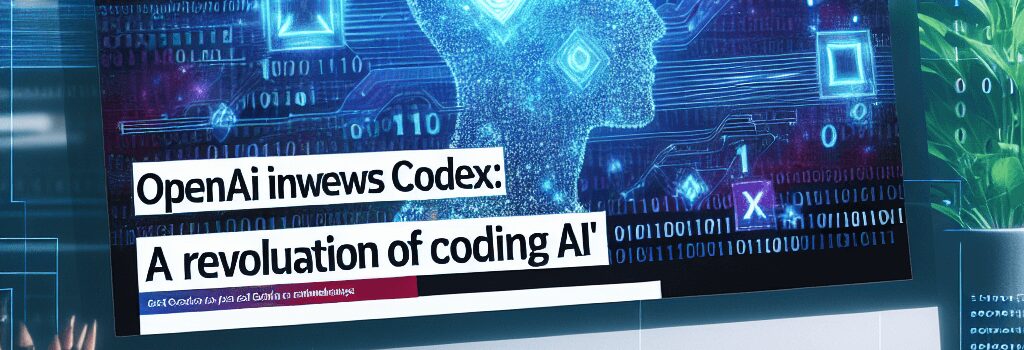OpenAI Unveils Codex: A Revolution in Coding AI

On May 16, 2025, OpenAI announced the research preview of Codex, its first full-blown AI agent designed to handle complex, end-to-end coding tasks. Positioned within the ChatGPT interface, Codex recreates your entire development environment—dependencies, build tools, test suites—and can run tasks lasting up to 30 minutes. This marks a major evolution beyond simple code completion or snippet suggestions, as Codex can generate production-ready modules, execute tests, and document its own reasoning for every step.
How It Works: Agentic Environment Replication
- Containerized Dev Environments: Each Codex task runs in an isolated Docker or OCI container preloaded with your repository, environment variables, and language runtimes (Python, JavaScript, Java, Go, and more).
- AGENTS.md for Customization: Developers can add an
AGENTS.mdfile to specify coding standards, testing requirements, style guides, or domain-specific instructions—effectively a machine-readable README. - Interactive Prompts: In ChatGPT’s sidebar you choose either “Code” for generation or “Ask” for advisory modes, allowing you to guide Codex as though it were a junior developer on your team.
Technical Architecture and Model Details
Codex is powered by codex-1, a fine-tuned instance of OpenAI’s o3 reasoning model. Through Reinforcement Learning from Human Feedback (RLHF), codex-1 was trained on billions of lines of open-source code, private customer repos (opt-in), and continuous integration (CI) logs. Key specs include:
- ~80 billion parameters focused on code representation and synthesis.
- Integrated symbolic reasoning modules for automated unit testing and static analysis.
- On-the-fly linting hooks (ESLint, PyLint, and custom rules) to enforce security and style compliance.
Security, Compliance, and Best Practices
Unlike earlier AI coding tools, Codex transparently shows its internal execution trace and test outputs, making it easier to audit for security flaws, dependency misconfigurations, or licensing issues. OpenAI collaborated with third-party security firms to integrate:
- Dependency Scanning: Automatic vulnerability checks using OWASP Dependency-Check and Snyk APIs.
- Secrets Detection: Built-in heuristics to flag hard-coded credentials or tokens before any code is returned.
- Role-Based Access Control: Enterprise users can enforce policy guardrails, ensuring AI agents cannot write to prod branches without review.
Integrations and DevOps Implications
Codex plugs into popular CI/CD pipelines—GitHub Actions, GitLab CI, Jenkins—and can be configured to open pull requests automatically, run end-to-end tests, and even update documentation. Early adopters report up to 40% reduction in PR cycle time when using Codex for boilerplate components, test scaffolding, and API client generation.
Pricing, Availability, and Future Roadmap
Currently in research preview and free for ChatGPT Pro, Enterprise, and Team users through summer 2025, Codex will later transition to a usage-based pricing model. OpenAI hints at tiered plans based on compute minutes per container, with enterprise support for on-prem deployments. Future updates include:
- Multi-agent orchestration for orchestrating complex microservice deployments.
- Enhanced language support for Rust, Kotlin, and domain-specific languages like Solidity.
- Deeper integration with Microsoft Azure AI and AWS CodeWhisperer for hybrid cloud workflows.
Expert Perspectives
“We’re seeing a shift from assistive AI to autonomous coding agents, and Codex is leading the charge,” says Dr. Lina Chen, CTO of DevFlow Analytics. “Its ability to explain its thought process makes it a powerful tool for both onboarding and continuous code maintenance.”
Implications for the Developer Ecosystem
As AI agents like Codex mature, the role of developers will evolve toward system design, oversight, and complex problem solving. Companies that adopt such agents early can accelerate feature delivery, tighten security compliance, and reclaim developer bandwidth for innovation rather than routine tasks.